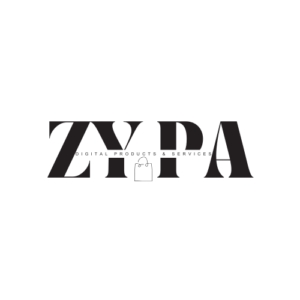Whats Vibe Coding? Illustrated with Examples
What, therefore, is vibe coding? Combining creativity with coding to create projects that feel alive, vibe coding is the newest trend in content generation and digital expansion. Unlike conventional programming, vibe coding gives first priority to intuitive, mood-driven creation whereby the code reflects the creator’s energy and the project’s aesthetic. Imagine it as coding with a vision board in mind and a playlist in the background. The vibe coding definition is straightforward→ usually using tools meant for fast, visually appealing outputs, it’s a programming method that combines technical rationale with emotional resonance. In 2025, this coding is transforming how developers in the US, UK, Singapore, and elsewhere approach digital ventures, from apps to websites.
Other interpretations describe vibe coding as a design-focused approach that emphasizes user interface aesthetics, rapid prototyping, and emotionally resonant user experiences.
Here is the vibe coding meaning dissected→
- Creative Freedom→ Code with colors, animations, and layouts that complement your project’s mood—think bright for a nightlife app or pastel for a health blog.
- User-Centric Design→ Build interfaces that vibe with your audience, like Instagram’s algorithm-driven feeds that captivate consumers instantly.
- Fast Prototyping→ From concept to prototype in hours, not weeks, use rapid coding tools such as Framer or Webflow.
Let’s look at samples to make it absolutely clear→
- Portfolio Website→ A freelancer in Canada employs this coding to develop a portfolio with dynamic gradients and hover effects, created with Figma-to-code tools, displaying their bold personal identity.
- E-commerce App→ A firm in Singapore designs a shopping app with this coding, employing smooth transitions and handpicked visuals to complement their Gen Z audience’s aesthetic.
Ready to code with soul? This coding is like pouring your morning coffee into your keyboard—pure magic! Let’s keep the energy flowing! Stay Tuned till the end of the post because we will play a Game at the End of the post.
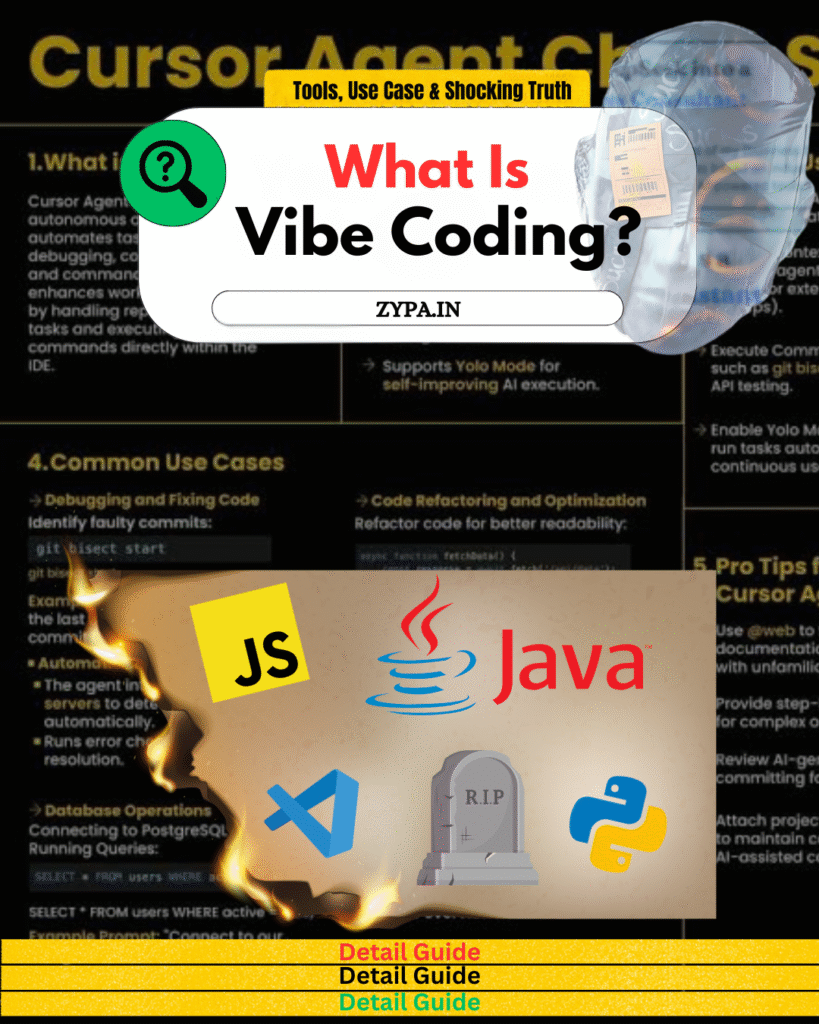
How Does Vibe Coding Work in 2025?
Curious about what’s this coding and how it actually works? In 2025, Vibe Coding is like painting with code—blending tech and artistry to create digital experiences that pop. It’s not just about producing lines of code; it’s about infusing your project with a tone, aesthetic, and energy that resonates with consumers.
At its core, the vibe coding meaning rests in its process→ developers use intuitive platforms and vibe coding tools to prioritize visuals, interactions, and emotions above rigid syntax. Think of it as coding with a mood board, where every line serves the project’s tone, whether it’s a slick software for a Russian firm or a lively website for a Colombian influencer.
Here’s how this Coding works in 2025→
- Choose Your Tools→ Platforms like Webflow, Framer, or Bubble enable you drag, drop, and code with minimal effort, excellent for rapid prototyping.
- Set the Mood→ Define your project’s aesthetic—bold and futuristic for a Singapore tech firm or comfortable and warm for a Canadian e-commerce site.
- Iterate Fast→ Use real-time previews to alter animations, colors, and layouts, ensuring the vibe corresponds with your vision.
- Deploy with Ease→ Export pristine code or host straight on platforms like Vercel, getting your product live in hours.
For example, a UK-based content developer might use vibe coding tools like Figma with a code export plugin to construct a portfolio site with smooth scroll effects and pastel gradients. Meanwhile, a Chinese developer may harness Bubble to construct a gamified app with neon accents, all without touching standard codebases.
Hold up—did your code just wink at you? That’s Vibe Coding, turning your project into a digital party! Ready for more?
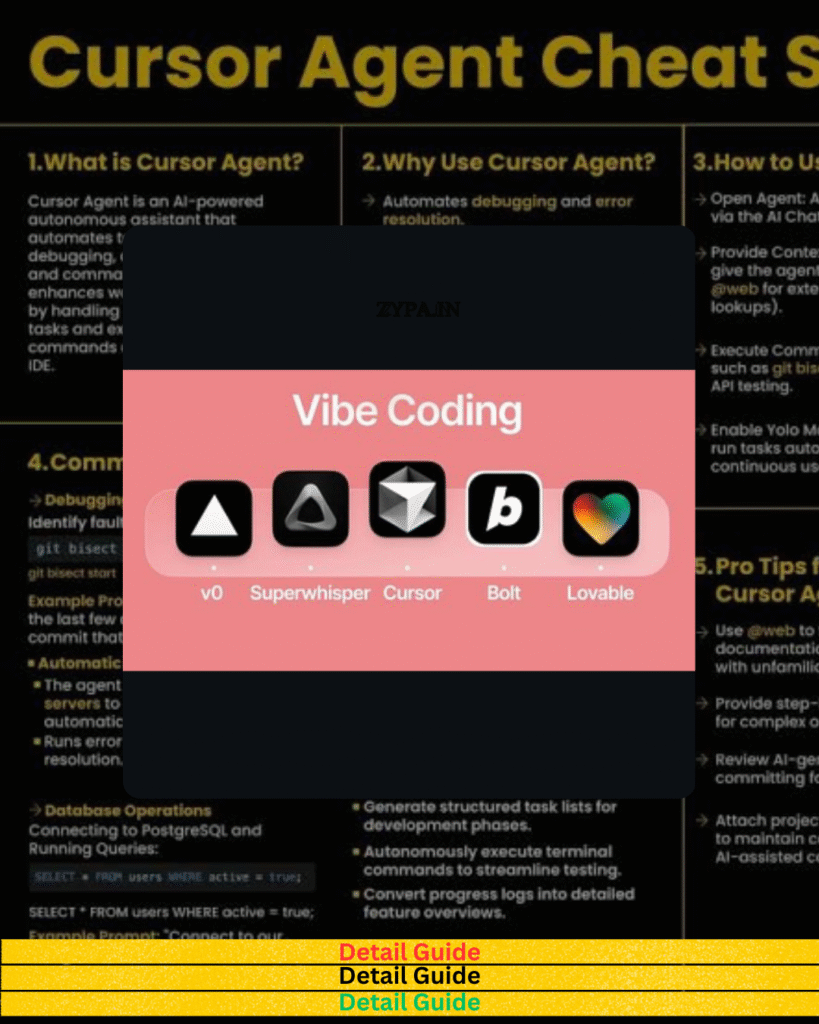
Vibe Coding vs Traditional Coding→ Key Differences
Wondering what’s this vibe coding compared to the old-school coding grind? This Coding flips the script on traditional coding by promoting creativity, speed, and emotional effect over rigid structure. While traditional coding is concerned about logic and precision, this coding infuses projects with personality, making it a game-changer for creators in 2025.
The vibe coding definition stresses its focus on intuitive, aesthetic-driven development, generally enabled by vibe coding tools like Webflow or Framer. Traditional coding, on the other hand, relies on heavy syntax and manual frameworks like React or Django. Let’s dig into the important distinctions to discover why this coding is capturing the spotlight.
Here’s a brief comparison table to make it plain clear→
| Aspect | Vibe Coding | Traditional Coding |
|---|---|---|
| Approach | Mood-driven, visual-first coding with drag-and-drop tools | Logic-driven, text-based coding with strict syntax |
| Tools | Webflow, Framer, Bubble for rapid prototyping | VS Code, Git, frameworks like React or Python |
| Learning Curve | Beginner-friendly, learn in days | Steep, takes months to master |
| Output | Dynamic, aesthetic-focused apps or sites | Functional but often less visually polished |
| Use Case | Portfolios, apps, or sites for creators in Singapore or Canada | Complex systems or backend for enterprises in China or Russia |
Why does this matter? Vibe coding meaning is all about helping creators—whether you’re a UK influencer or a Colombian startup—to produce amazing projects without wrestling with code for weeks. For example, a Russian designer might use this coding to whip up a clean portfolio in hours, but traditional coding would keep them troubleshooting CSS for days.
Key takeaways→
- Speed→ This coding gets you from idea to launch faster than Usain Bolt running the 100-meter.
- Creativity→ It’s like giving your code a personality, great for visually driven markets like the US or UK.
- Accessibility→ No PhD in computer science needed—This coding is for everyone!
Whoa, did your code just drop a beat? That’s Vibe Coding outshining the competition! Let’s pump up the volume!
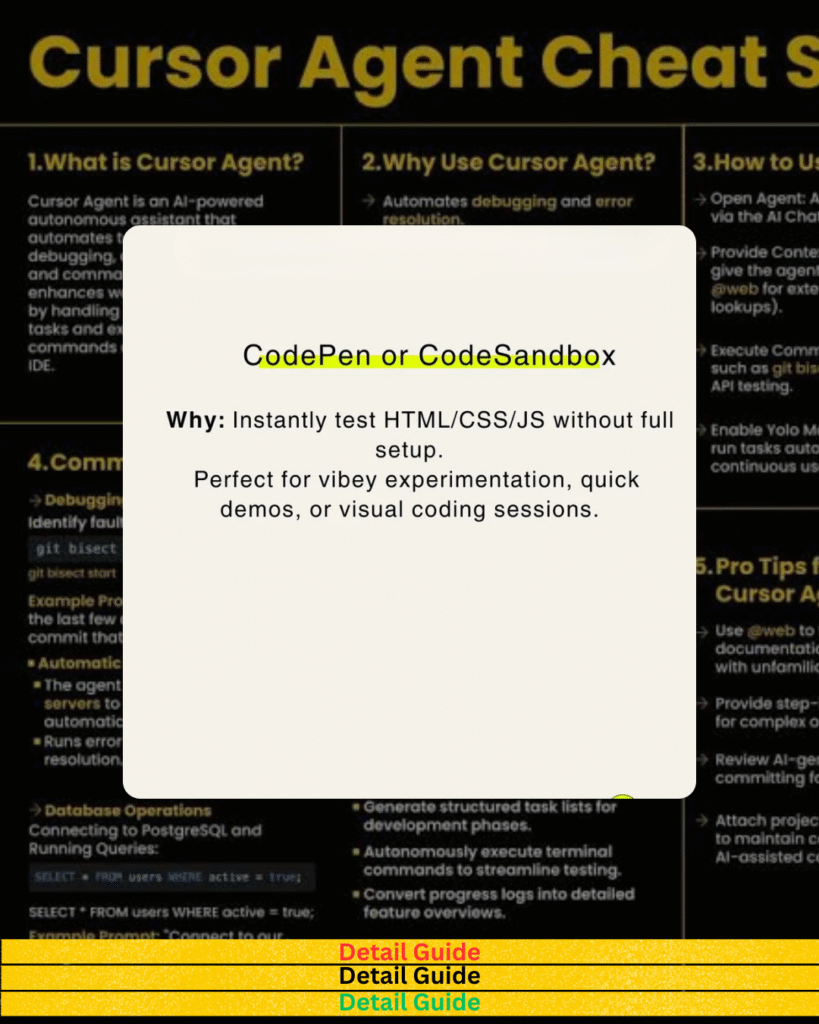
Why Vibe Coding is the Future of Development
In 2025, Vibe Coding isn’t just a trend—it’s the future of development, changing up how artists make digital experiences. It’s a creative revolution that integrates aesthetics, speed, and accessibility, making it suited for the fast-paced digital growth demands of markets like the US, Singapore, and Russia.
The vibe coding philosophy is built in empowerment→ it helps anyone—coders or not—build great apps, websites, or portfolios with this coding tools like Framer or Bubble. Unlike traditional coding, which can feel like solving a math puzzle, this coding is like picking a playlist→ it’s enjoyable, intuitive, and full of personality.
Here’s why Vibe Coding is poised to dominate→
- Democratizes Development→ No requirement for a computer science degree—creators in Canada or Colombia can get in with minimum instruction.
- Faster Time-to-Market→ Build and launch ideas in days, not months, excellent for businesses in China or the UK racing to scale.
- Visual-First Focus→ Prioritizes user experience with dynamic designs, coinciding with 2025’s desire for immersive digital content.
- Cost-Effective→ Skip paying pricey devs—use affordable vibe coding tool to generate pro-level results.
Imagine a Singapore influencer releasing a vibe-coded website with neon animations in a weekend, or a Russian entrepreneur designing an app without writing a line of JavaScript. That’s the power of this coding, and it’s why it’s the go-to for content production and digital growth in 2025.
Future, meet Vibe Coding—it’s like your code just got a VIP pass to 2025! Let’s keep this party moving!
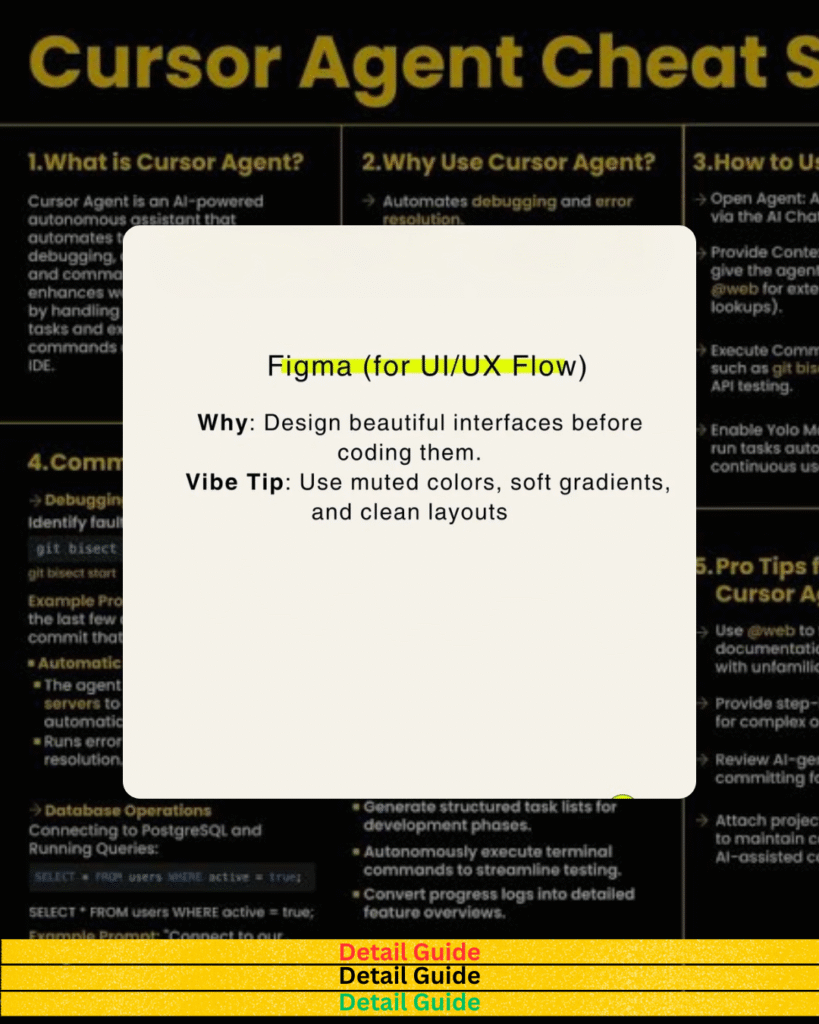
Top Use Cases of Vibe Coding in Real Projects
Vibe Coding is redefining how creators bring ideas to life, and its use cases are as diverse as your audience in the US, UK, or Colombia. It’s a creative coding technique that powers real-world projects with speed and style, owing to this coding tools like Webflow and Figma-to-code plugins.
The vibe coding definition underscores its versatility→ it’s great for anyone trying to construct visually stunning, user-focused digital products.
Here are the top usage cases of Vibe Coding in real projects→
- Personal Portfolios→ Freelancers in Canada employ this coding to design interactive portfolios with seamless animations, highlighting their brand’s vibrancy.
- E-commerce Platforms→ Singapore businesses construct vibe-coded online stores with dynamic product displays, driving sales with Gen Z-friendly designs.
- Event Landing Pages→ UK event organizers construct one-page webpages with dramatic images and countdown timers, created in hours using Bubble.
- Content Creator Hubs→ Russian bloggers develop vibe-coded websites with integrated social feeds, keeping fans engaged with immersive designs.
For instance, a Colombian startup used vibe coding tool to create a fitness app with colorful colors and gamified features, attracting investors in weeks. The vibe coding meaning shines here→ it’s about designing products that seem alive and connect with users instantaneously.
Projects so lit they need sunglasses? That’s Vibe Coding in action! Let’s see what’s next!
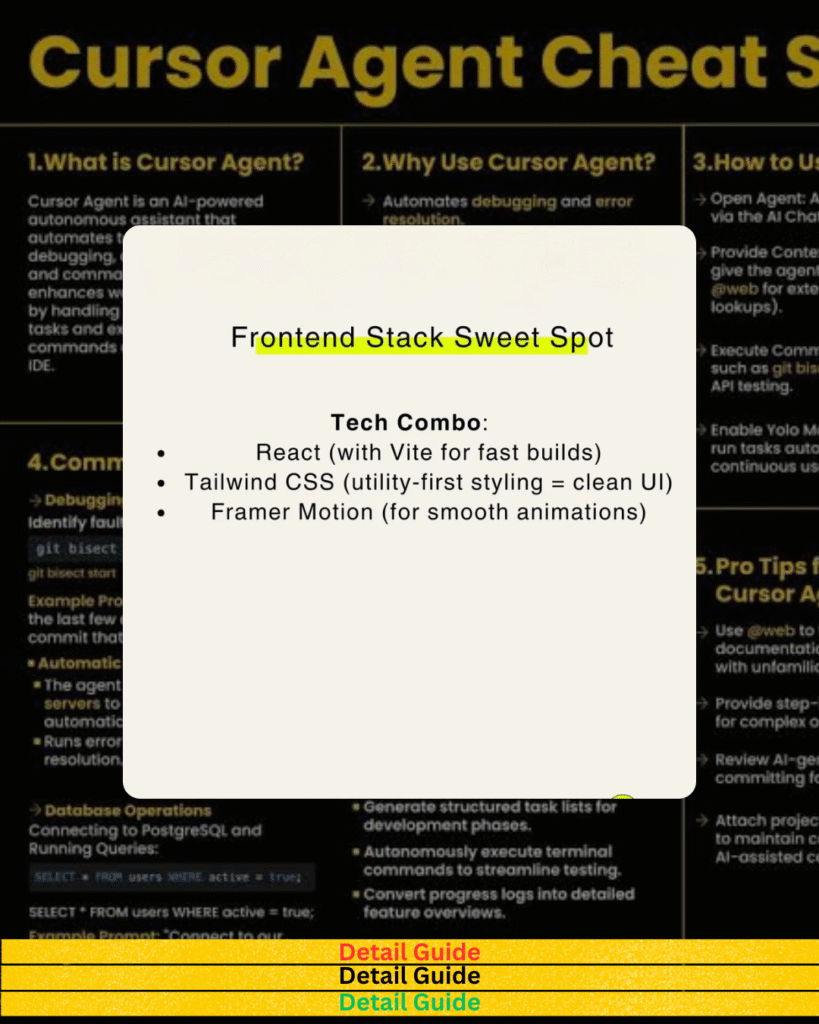
Best Vibe Coding Tools Compared for 2025
Ready to get into this Coding? The appropriate feeling coding tools make all the difference, putting your thoughts into reality with ease. Whats vibe coding without tools like Webflow, Framer, or Bubble? These platforms are the backbone of this coding, empowering creators in the US, China, and abroad to construct spectacular projects in 2025.
The vibe coding meaning is connected to accessibility, and these tools deliver by streamlining the programming process. Whether you’re a UK designer or a Russian entrepreneur, here’s a comparison of the best feel coding tools for 2025.
| Tool | Best For | Key Features | Pricing |
|---|---|---|---|
| Webflow | Websites & Portfolios | Drag-and-drop, responsive design, CMS integration | Free plan; Paid from $14/month |
| Framer | Interactive Prototypes | Animation tools, Figma import, code export | Free plan; Paid from $12/month |
| Bubble | No-Code Apps | App builder, database integration, plugins | Free plan; Paid from $29/month |
| Figma + Plugins | Design-to-Code | Design tools, code export, collaboration | Free plan; Paid from $12/month |
Each tool corresponds with the vibe coding definition→ intuitive, visual, and rapid. For example, a Canadian freelancer might use Webflow for a clean portfolio, while a Singapore business picks Bubble for a vibe-coded app. Choose based on your project’s vibe—there’s a tool for every developer!
Tools so slick they’re literally your code’s best buddy! Let’s roll on!
How to Start with Vibe Coding→ A Beginner’s Roadmap
New to this Coding? No sweat! Vibe coding the easiest method to enter into development, even if you’ve never coded before. In 2025, this coding is all about making creation pleasant and accessible for beginners in the US, Colombia, or Russia.
The vibe coding concept is clear→ it’s coding with a creative twist, using vibe coding tools to construct projects that match your vision. This roadmap will get you started, whether you’re in Singapore or the UK, with no IT degree required.
Follow these steps to kick off your vibe coding journey→
- Pick a Tool→ Start with beginner-friendly web coding tools like Webflow or Bubble—both have free plans and training.
- Learn the Basics→ Watch YouTube lessons or take a quick course on platforms like Udemy to comprehend the basic coding concept.
- Start Small→ Build a modest project, like a one-page portfolio, to practice drag-and-drop design and basic interactions.
- Experiment→ Play with colors, animations, and layouts to make your project vibe with your audience.
- Launch→ Host your project on Vercel or export clean code to share with the world.
For example, a Canadian student might use Framer to construct a vibe-coded blog in a weekend, while a Chinese creator produces a portfolio with Webflow. The vibe coding meaning is all about starting where you are and growing rapidly.
Beginner? Psh, you’re a vibe coding rockstar in the making! Let’s keep it rockin’!
Vibe Coding Syntax Guide→ Write Your First Code
Ready to write your first Vibe Coding project? What is this coding when it comes to syntax? It’s less about learning code and more about leveraging vibe coding tools to create with minimal typing. In 2025, platforms like Webflow and Bubble make syntax a breeze for authors in the US, UK, or China.
The vibe coding definition emphasizes visual coding, although other tools enable you tweak code for extra flair. Here’s a short introduction to create your first vibe-coded project using Webflow’s visual editor and custom code.
Steps to write your first vibe code→
- Create a Project→ Start a new site in Webflow and choose a template that matches your vibe.
- Add Elements→ Drag in buttons, photos, or text, changing colors and animations via the visual panel.
- Tweak with CSS→ Add custom code like .button { transition→ all 0.3s easy; } for smooth hover effects.
- Preview & Publish→ Test your site live and export or host it immediately.
Example→ A Colombian creator might add a neon button with .neon { box-shadow→ 0 0 10px #ff00ff; } to make their portfolio pop. The vibe coding meaning here? Keep it basic, keep it stylish.
Your first code is effectively a digital high-five! Let’s code more vibrations!
Common Errors in Vibe Coding and How to Fix Them
Mistakes happen, even in this Coding! What is this coding without a few hiccups? Using vibration coding tools like Framer or Bubble is beginner-friendly, however errors can creep up. Here’s how to tackle them in 2025, whether you’re in Singapore or Russia.
The vibe coding means is about inventiveness, yet computer faults can darken your glitter. This table contains common vibe coding problems and associated remedies for smooth sailing.
| Error | Cause | Fix |
|---|---|---|
| Broken Animations | Incorrect timing settings | Check animation duration in Webflow (e.g., set to 0.3s) |
| Non-Responsive Design | Missing mobile breakpoints | Add breakpoints in Framer for tablet and phone |
| Export Fails | Unsupported plugins | Remove third-party plugins in Bubble before export |
| Slow Load Times | Large image files | Compress images to under 100KB before uploading |
For instance, a UK creator might remedy a sluggish vibe-coded site by optimizing graphics, while a Canadian freelancer tweaks breakpoints for mobile visitors. Stay calm, and you’ll understand the vibe code definition in no time!
Oops, did your code trip? No worries, it’s back on the dance floor! Let’s keep grooving!
Vibe Coding Community→ Best Places to Learn and Connect
The Vibe Coding community is booming with creators sharing tips, methods, and inspo! What is vibe coding? It’s not simply a skill—it’s a movement. In 2025, communicating with people utilizing vibe coding tool is important to leveling up, whether you’re in the US, Colombia, or China.
The vibe coding meaning develops in communal areas where novices and pros trade ideas. Here are the top locations to learn and connect→
- Webflow University→ Free classes and forums for mastering Webflow, great for UK beginners.
- Bubble Community→ A community for app makers, perfect for Russian startups discussing no-code innovations.
- Framer Discord→ Chat with designers in Singapore or Canada about animations and prototypes.
- X Platform Groups→ Join vibe code discussions on X for real-time tips from worldwide makers.
A Canadian blogger might learn responsive design on Webflow University, while a Russian coder swaps Bubble plugins on Discord. Dive into these communities to make the vibe coding definition your own!
Join the vibe coding squad—it’s like a digital campfire for makers! Let’s keep the flames flying!
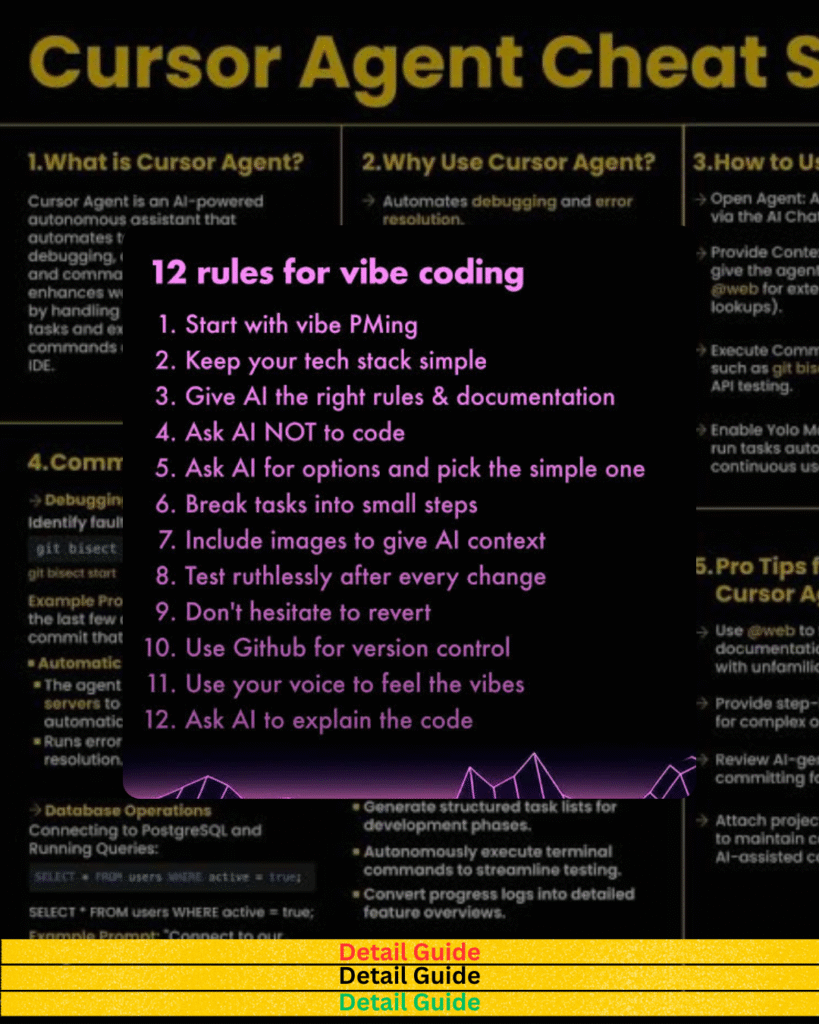
Vibe Coding for App Development
Vibe Coding is a game-changer for app development, helping designers build apps that sparkle with personality. It’s coding with an emphasis on aesthetics and user interaction, employing vibe coding tools like Bubble or Adalo to develop apps for markets in the US, Singapore, or Russia.
The vibe coding meaning radiates in apps→ think vivid designs, seamless transitions, and intuitive interfaces. In 2025, this coding makes app development accessible, even for non-coders in Colombia or the UK.
Why use this Coding for apps?
- Rapid Prototyping→ Build a working app in days, not months, with technologies like Bubble.
- Visual Appeal→ Create interfaces with strong colors and animations that hook consumers instantly.
- No-Code Power→ No need for Swift or Kotlin—this coding tools handle the heavy lifting.
Example→ A Chinese business vibe-coded a fitness software with gamified challenges using Adalo, launching in weeks. A Canadian designer constructed a social app with Bubble, replete with neon buttons. That’s the vibe coding definition in action!
Apps so cool they’re basically digital superstars! Let’s keep coding the future!
Integrating Vibe Coding with Firebase Studio
Vibe Coding with Firebase Studio are a combination made in digital paradise! It’s the art of building attractive, user-focused apps, and Firebase Studio supercharges them with backend power. In 2025, developers in the US, Russia, or Singapore are pairing vibe coding tools with Firebase for next-level apps and sites.
The feeling coding meaning gets a boost with Firebase Studio’s database, authentication, and hosting services. Here’s how they function together, with a comparison chart to explain it out.
| Feature | Vibe Coding Tool | Firebase Studio | Integration Benefit |
|---|---|---|---|
| Frontend | Webflow/Bubble | N/A | Stunning visuals with vibe-coded designs |
| Database | Limited | Realtime Database | Store user data for dynamic apps |
| Authentication | Basic | OAuth/Social Logins | Secure user logins for vibe-coded apps |
| Hosting | Platform-specific | Global CDN | Fast, scalable hosting for projects |
For example, a UK startup vibe-coded a community app with Bubble and used Firebase Studio for real-time chat capabilities. A Colombian inventor implemented Firebase authentication into a Webflow site for safe user logins. The vibe coding definition meets scalability here!
Vibe Coding + Firebase? It’s like peanut butter and jelly for your app! Let’s keep it tasty!
Is Vibe Coding Compatible with Grok 3 and Claude AI?
Vibe Coding and AI are a dynamic pair, but how do they stack up with Grok 3 and Claude AI? It’s creative coding with vibe coding tool like Webflow, and in 2025, artists in the US, Canada, or China want to know if AI can supercharge their vibe-coded products.
The vibe coding meaning is about rapid, beautiful development, and AI like Grok 3 or Claude can boost it. Here’s the compatibility breakdown→
- Grok 3→ Created by xAI, Grok 3 may produce this coding snippets or recommend design adjustments using its API (accessible at x.ai/api). It’s ideal for brainstorming layouts for a Singapore portfolio.
- Claude AI→ Anthropic’s Claude excels at writing unique CSS or JavaScript for vibe-coded applications, appropriate for a Russian app’s animations.
- Limitations→ Neither AI directly connects with technologies like Bubble, but you can copy-paste their code into bespoke code sections.
Example→ A UK designer utilized Grok 3 to build a neon button style for a WebfCUT at line 2048
